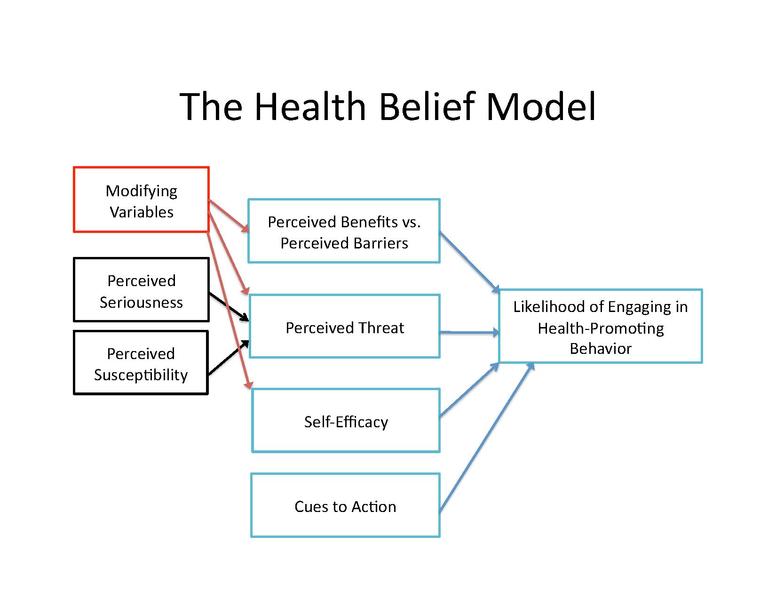Monday’s issue of JAMA Internal Medicine included results of a survey about American’s perceptions about health interventions and medical practices. Half of all Americans, according to JAMA, believe in one or more medical conspiracy theories, such as the autism/vaccination connection and deliberate, CIA sponsored, HIV infection of African Americans.
These beliefs are powerful and real examples of the challenges faced by public health workers around the globe as well as here in Baltimore. Beliefs are incredibly hard to shake free once they have taken hold, and no preponderance of evidence will be sufficient to do so, unless a number of other factors come into play as well. This is one of the primary reasons that public health experts emphasize the importance of community involvement in interventions, in building trust and relationships among the families and networks that are targeted for the intervention, and supporting the growth and learning that leads to change.

The Health Belief Model, Wkimedia Commons
A study published in the late 90’s illustrates an example right here in Baltimore, in that case of the perceptions of the benefits of preventative oral health care. Beliefs are often tied to communities, including communities of geography, race, ethnicity, economic status, and gender. Those who are most likely to refuse vaccination, for instance, are likely to be well educated and well-to-do.
The implications for Baltimore are substantial, and tied to our burden of disease. Public health efforts to address the HIV rate among young black gay men, or the rate of narcotic use, or even more socioeconomic health factors such as poverty and nutrition can only succeed if the perceptions of healthy behavior are also addressed.
As all of us who have ever tried to argue with deeply held beliefs will attest, however, people who believe things believe they are true. This is true for all of us. Imagine someone well-meaning and intelligent coming up to you and saying: “Listen, I know you BELIEVE that this gravity thing is a force that pulls you downward, but this is merely a perception that is reinforced by your community. If you listen to this well reasoned argument, then you will be free from this inaccurate belief and thus free to enjoy the benefits of weightlessness, ease of motion, decreased back pain, and splinters in your socks.”
ChangeEngine is a group of public health advocates, whether through advocating for thoughtful design and public planning, creative solutions to aging, the importance of art, the awareness of racial, gender, and socioeconomic divisions. We encourage thoughtful and creative solutions to Baltimore’s challenges, and we challenge our readers to do the same. We must also encourage our ChangeEngine community members to consider and advocate for creative and thoughtful approaches that acknowledge and respect the burdens that belief can impose on community. We must respect that often the greatest barrier to changing ourselves IS ourselves. We need reflect no further than the New Year’s resolutions scattered upon the gym floor to appreciate that this is true.
My suspicion is that Baltimore – or whichever community you live in – reflects the beliefs reported in the JAMA survey. If you have evidence that either supports or contradicts this suspicion, I encourage you to share in our comments sections and on social media. What are our beliefs about how we got to this time and place? What community legends prevent your neighbors from seeking care? What is the consensus among your colleagues about food, health, or wealth? We must first identify the biases of our community before we can leverage that knowledge to effect transformational change.



Our Beliefs, Our Health http://t.co/luvN4Kn9gC